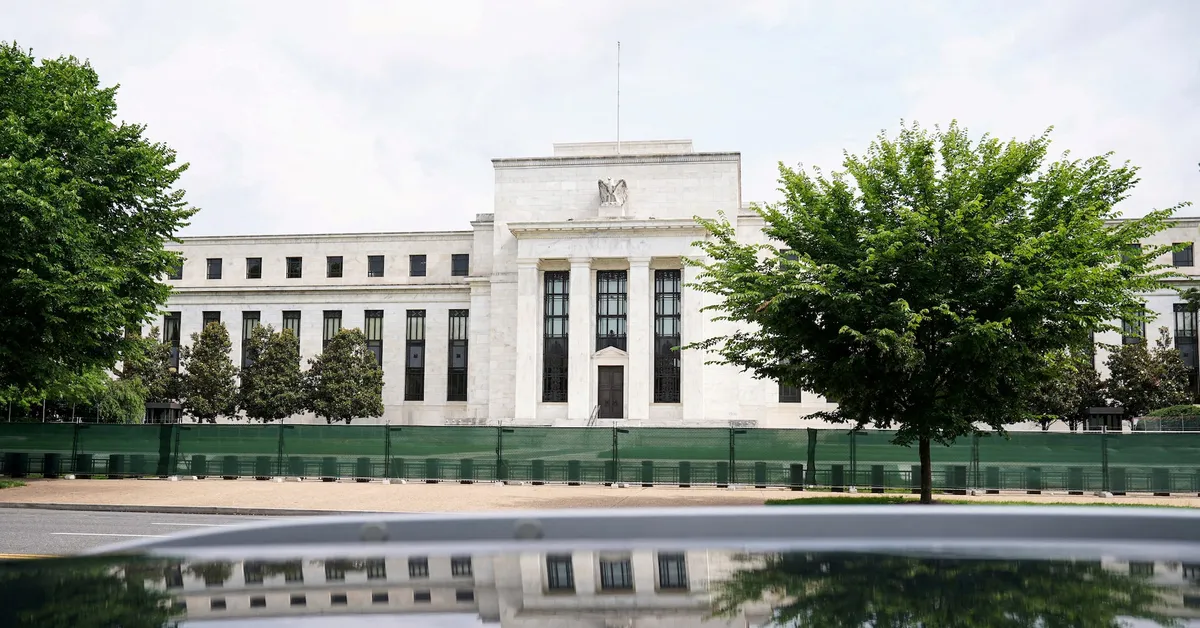
As the U.S. Federal Reserve prepares for its latest policy meeting on September 16-17, it encounters a significant challenge to its leadership that is currently unfolding in the courts. This situation coincides with an expedited effort to confirm President Donald Trump's nominee for an open seat on the central bank's Board of Governors. The Fed is bracing for a period of intense change, particularly in light of Trump's attempted dismissal of Governor Lisa Cook and the Senate's initiative to approve his nominee for another vacant position.
The attempt to remove Cook marks an unprecedented test of the Federal Reserve's independence, and it has the potential to alter how the central bank is perceived in international markets. In an institution typically characterized by its stable and technocratic discussions on complex issues, the uncertainty surrounding who will be present and voting during this crucial meeting raises questions about the Fed's future direction. Derek Tang from LH Meyer noted that this shift could lead the public to view Fed governors through the political lens of their appointments rather than as impartial decision-makers relying on economic data.
The next few days are critical, with a pivotal appeals court ruling regarding Cook's status expected as early as Sunday. Additionally, a Senate vote on Trump's Fed board nominee, Stephen Miran, is set for Monday. Analysts predict that these developments are unlikely to impact the immediate outcome of the meeting, where policymakers are expected to reduce the benchmark interest rate by a quarter-percentage-point from the current range of 4.25% to 4.50%. This would represent the first rate cut since December 2024, but it could also signify the beginning of Trump's influence over the central bank.
By the time the Fed's Federal Open Market Committee convenes on Tuesday, the independence of the institution may face significant challenges, particularly if a federal judge strips Cook of her position. Furthermore, if Miran, a vocal critic of the Fed and currently serving as chair of Trump's Council of Economic Advisers, is confirmed, he would participate in the critical discussions. However, the status quo could remain if Miran's nomination faces delays or if the appeals court permits Cook to continue serving while the legal matters are resolved.
The core issue revolves around whether Trump has sufficient grounds to remove Cook due to alleged false statements made in a mortgage application prior to her Fed appointment. This case is likely headed to the Supreme Court. In the meantime, U.S. District Judge Jia Cobb ruled that the president is unlikely to win in his bid to fire Cook, allowing her to remain in her position until the matter is fully adjudicated. Trump has appealed this decision, and a three-judge panel is expected to rule soon on Cook's future at the Fed.
Miran's nomination, to fill the seat left vacant by Adriana Kugler, is being fast-tracked through the Senate with a vote slated for Monday. If his confirmation goes smoothly, he could be sworn in just in time for the Fed's two-day session. During this meeting, the focus will shift toward a U.S. job market that appears more precarious than it did during the last meeting in July. Compounding this issue is the persistent inflation that continues to exceed the Fed's 2% target, largely as a consequence of Trump's aggressive tariff policies. Analysts suggest that the job market will remain the primary concern for policymakers moving forward.